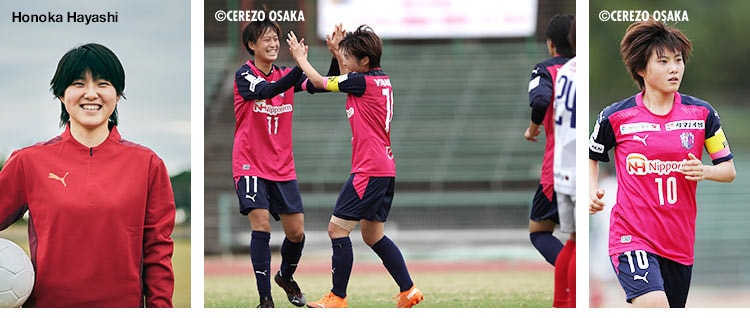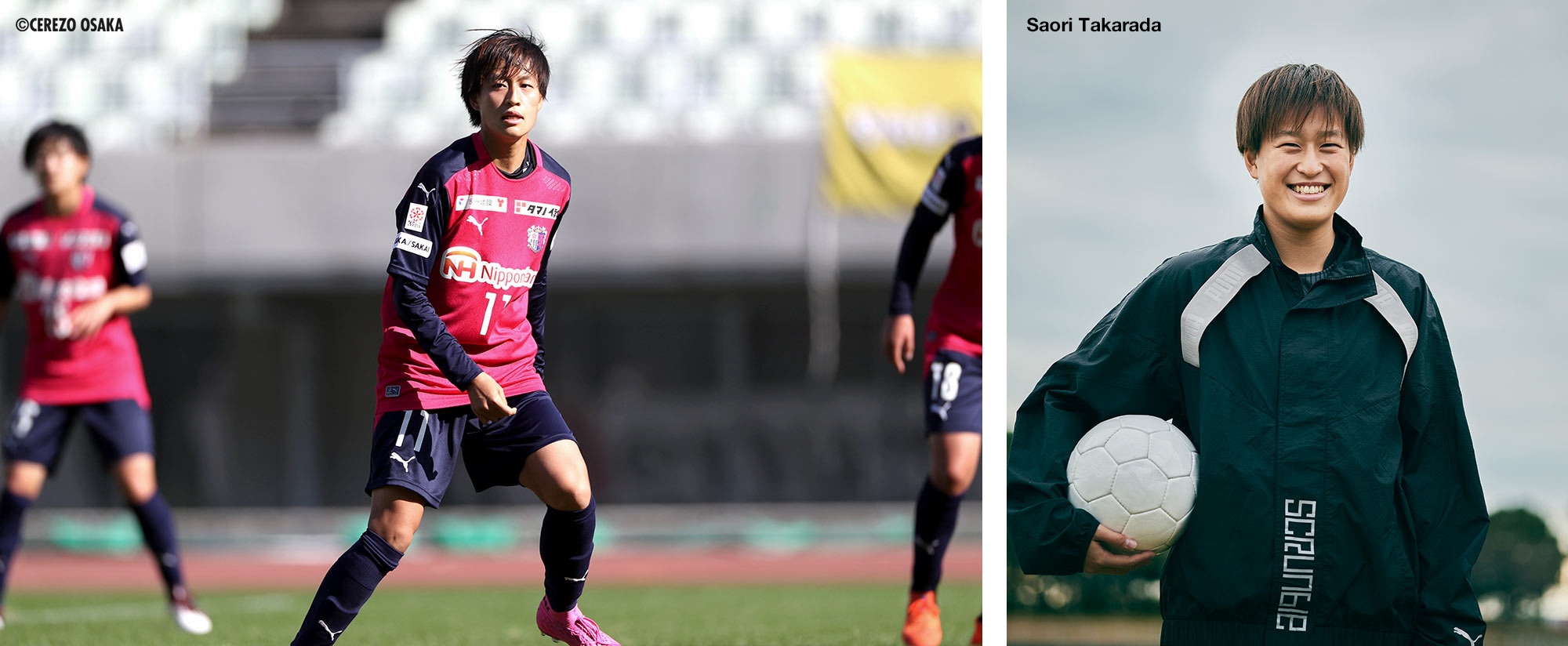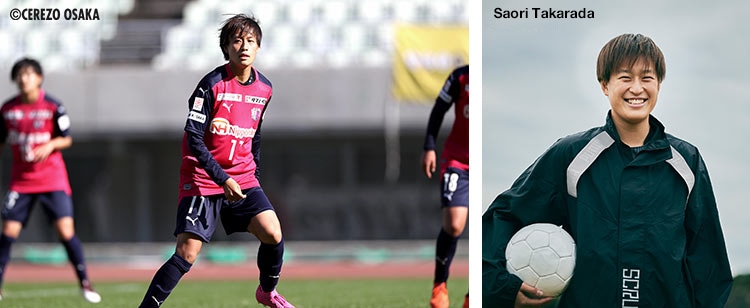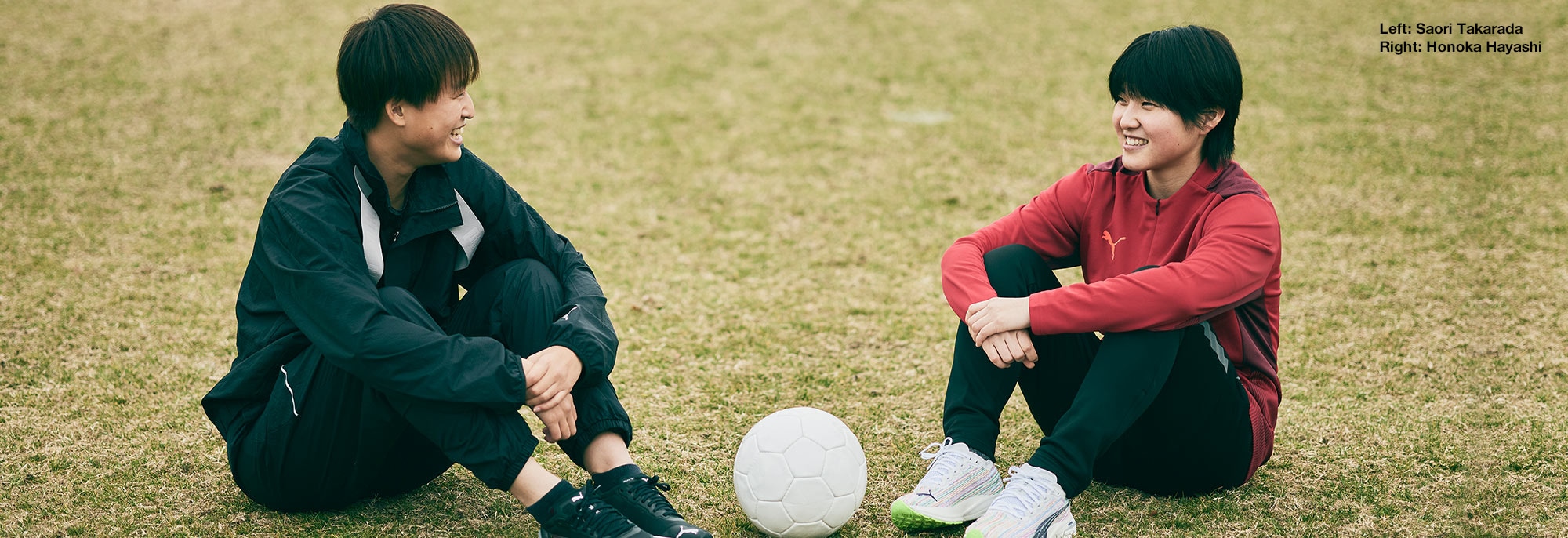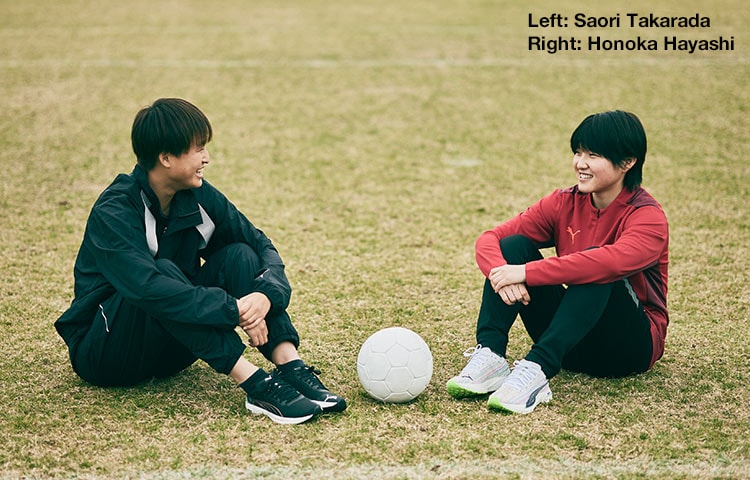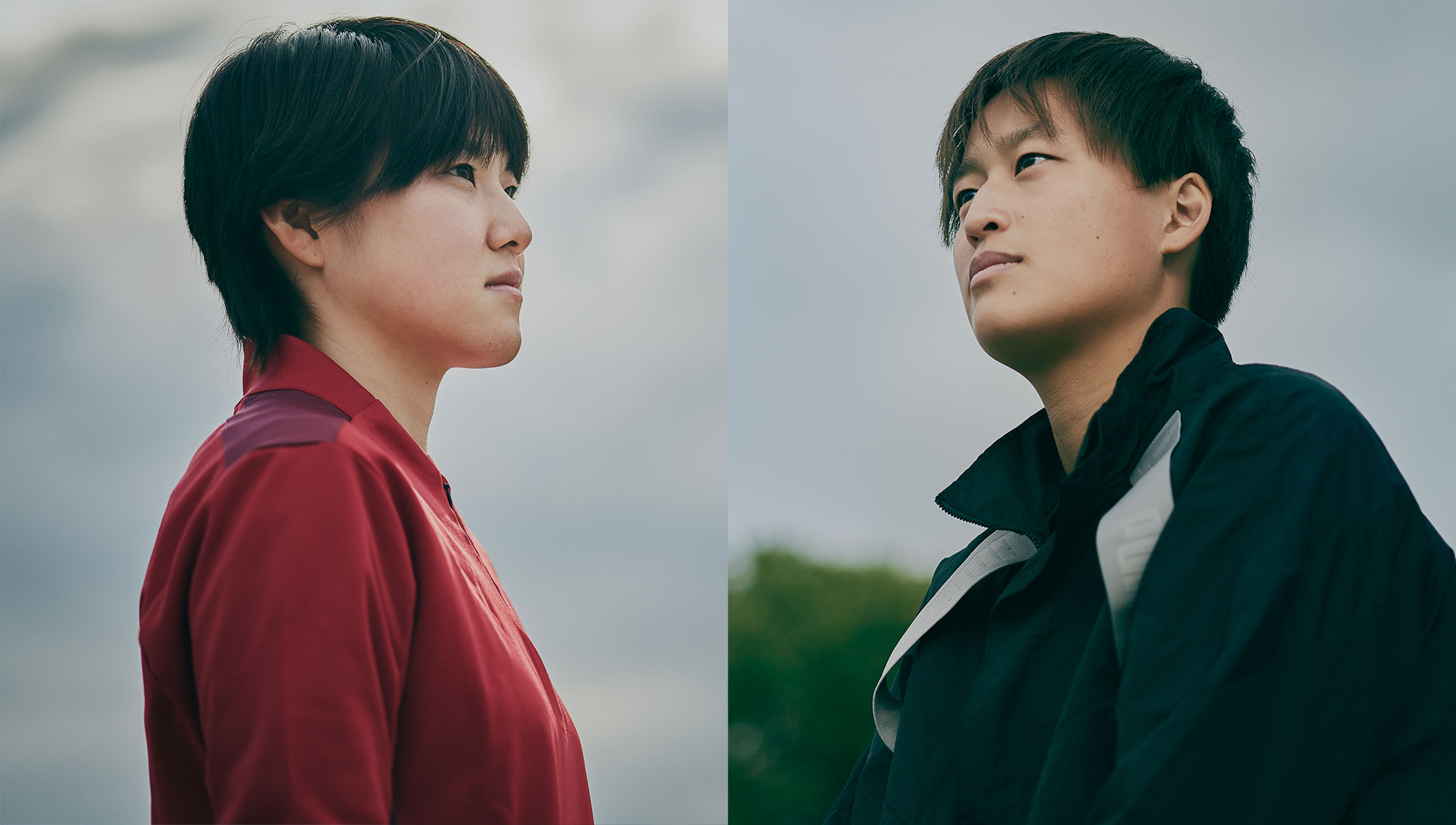
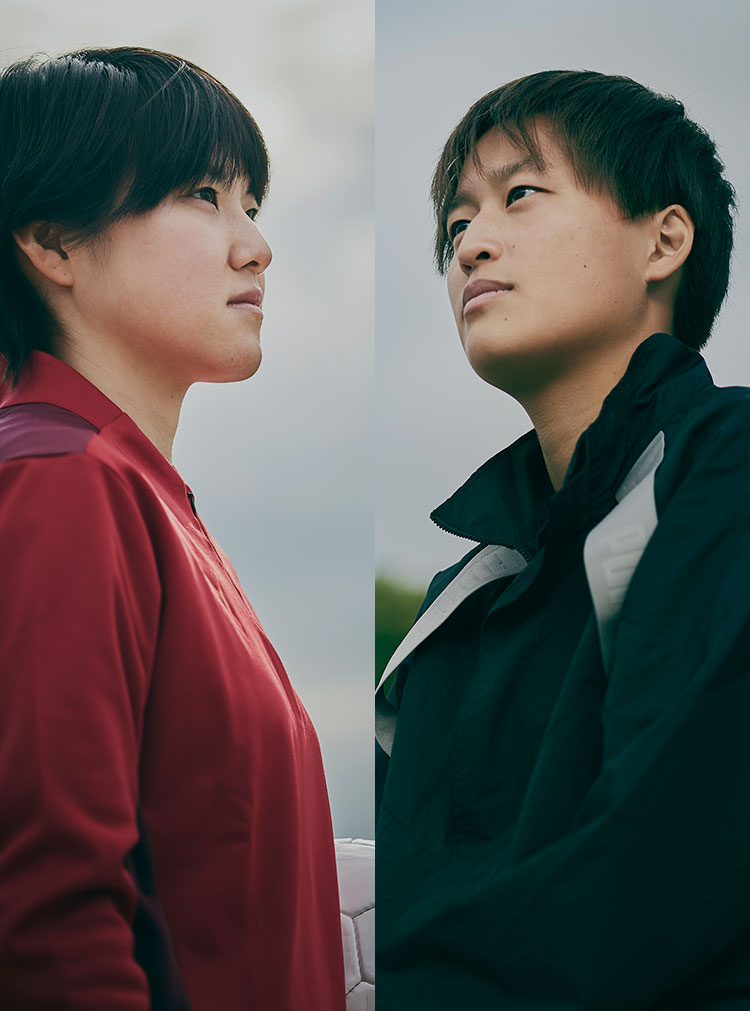



Profile
Honoka HAYASHI (left in photo)
Born in Kyoto, Japan in 1998. Position is midfielder. From the 2021 season, she transferred from Cerezo Osaka Sakai Ladies, where she had played for 10 years, to AIK Football a Swedish women's first division club. She plays a key role in the club with her excellent tactical sense and precise touch on the ball.
Saori TAKARADA (right in photo)
Born in Toyama, Japan in 1999. Positions are defender, midfielder, and forward. She transferred to Washington Spirits in the National Women’s Soccer League for the 2021 season. She transfer to Linköping in the Swedish women's first division for the 2022 season. She is also expected to play an active role with her exceptional physical ability and dexterity to play a variety of positions.
*This interview was conducted in December 2021.
Honoka HAYASHI (left in photo)
Born in Kyoto, Japan in 1998. Position is midfielder. From the 2021 season, she transferred from Cerezo Osaka Sakai Ladies, where she had played for 10 years, to AIK Football a Swedish women's first division club. She plays a key role in the club with her excellent tactical sense and precise touch on the ball.
Saori TAKARADA (right in photo)
Born in Toyama, Japan in 1999. Positions are defender, midfielder, and forward. She transferred to Washington Spirits in the National Women’s Soccer League for the 2021 season. She transfer to Linköping in the Swedish women's first division for the 2022 season. She is also expected to play an active role with her exceptional physical ability and dexterity to play a variety of positions.
*This interview was conducted in December 2021.
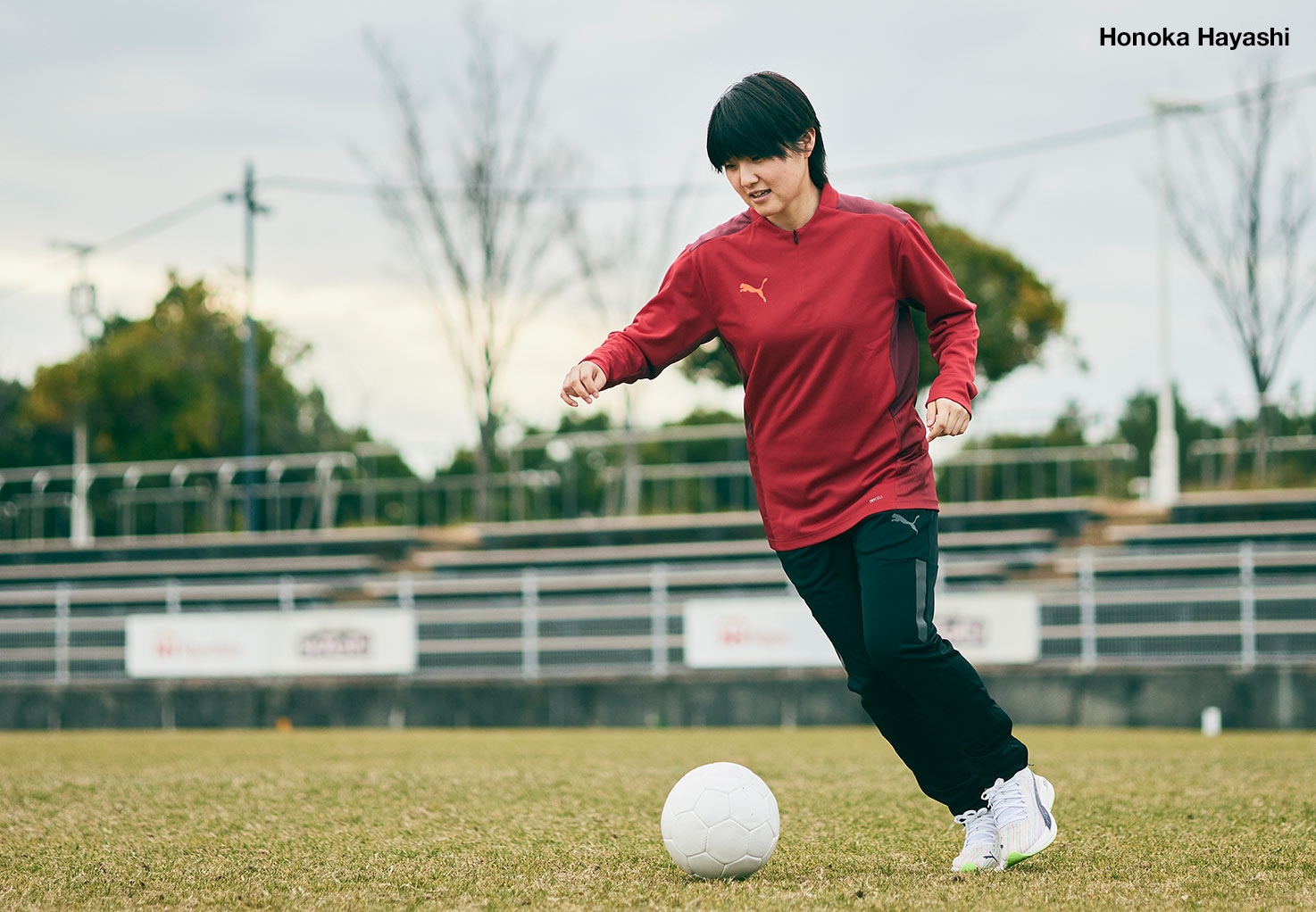
I kept facing myself in my first season in a foreign country, in a completely different environment.
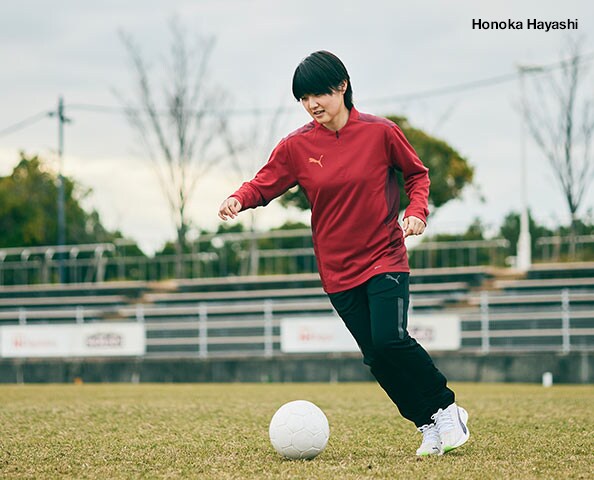
December 2020. Two young players have gone out into the world to make their way in the foreign league from Cerezo Osaka Sakai Ladies. Honoka HAYASHI is a young playmaker with an excellent skill who has made her presence in the Swedish First Division. In the United States, the kingdom of women's football, Saori TAKARADA keeps growing while playing multiple positions from a defender to a forward player. The two have decided to leave Osaka after 10 years and take on the world. After their first season abroad, what’s on their minds now?
- Q: What were the thoughts behind the two of you deciding to take on challenge in overseas?
- HAYASHI: Ever since I was a child, I wanted to play in the national team, but I never thought about playing in a league in a different country. As I face players from other countries on the national team, I started to think about how I could win against foreign players with different physiques two years ago. I thought the best option would be to transfer oversea and be exposed to strong and fast football, so I decided to take on the challenge.
TAKARADA: After experiencing winning the U-19 World Cup in 2018, I want to win more at this high level of competition. I've always wanted to try my play if I had the chance, and now that I've been given the opportunity, I've taken it and accepted the offer from the team in the United States. Playing in the U.S. is not only different in the football, but there is also a language barrier. Of course, I was worried. Yet, I thought there were many things that I would never understand unless I go there and experience it in person, so I decided to take on the challenge, too.
- Q: What changes have you experienced in yourself since your first season in a foreign league?
- HAYASHI: In Sweden, there are many players bigger than me. That difference was something I have never experienced in Japan, so I just focused on positioning and making quick decisions. After playing for a year, I found out that in order to consistently produce results overseas, it is important to be flexible and show your strength while dealing with different languages and playing styles. In my case, I have to figure out how to use my high level of tactical understanding, which is one of my strong points, in a game that requires constant and speedy judging the situation.. In any case, I play as good as anyone on the team in judging the situation.
TAKARADA: It was a year that I struggled to figure out how to combine my strengths with the team's style and how to make it to the starting member. The surrounding has changed a lot, and I have started to think a lot more about which of my strengths I need to sharpen and which I need to adapt to the team than when I was playing in Japan. The American style football is different. It involves a lot of long passes and counters, but that is why I would like to make a difference by predicting plays quickly and by the accuracy of short passes.
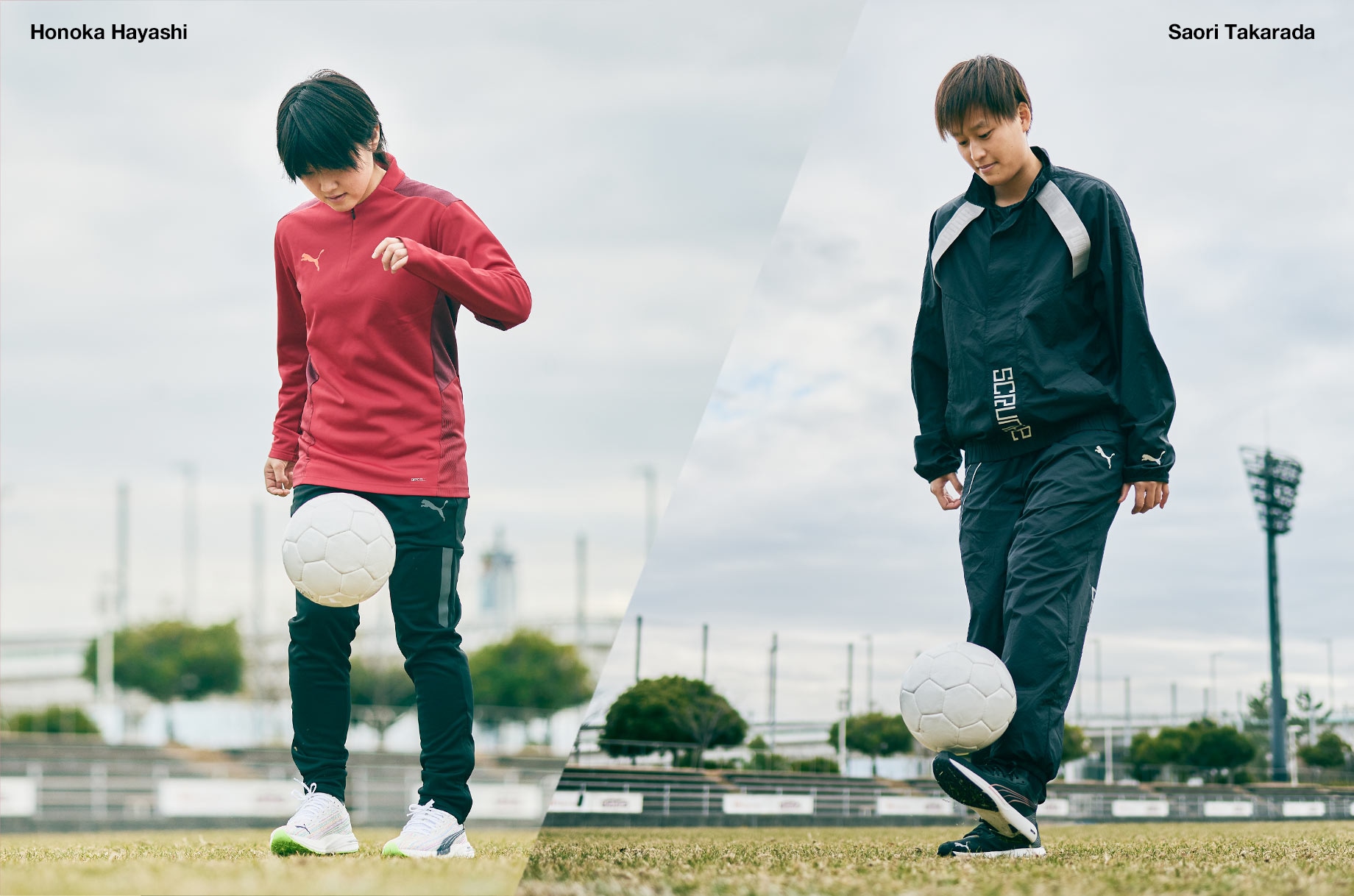

It is a pleasure to overcome the suffering and share it with the whole team. (HAYASHI)
The joy of challenging and overcoming strong opponents is the driving force in my engine that supports me. (TAKARADA)
They face the language and physic barriers in their new environment, but they keep pushing themselves to play. What is the driving force that drives these women to achieve even greater performance and to be unafraid of adversity?
- Q: When you were a member of Cerezo Osaka Sakai Ladies, you were relegated to the second division and then promoted back to the first division within a year. What were your motivations at the time?
- HAYASHI: I was also the captain of the team during the season when we were relegated, and it was a really hard and frustrating season because we couldn't win. I never want to go through that experience again, and I never want anyone around me to have to go through that again. My driving force that kept me going at that time could be in one word: “love” for the team. This is the football club that has brought me up since I was a child, and I think that my strong desire to win together with my teammates and supporters, with whom I have shared hard times, came out in my play.
TAKARADA: During the year we were in the second division, we played with the goal of growing and wining over the opponents we lost to in the first division when we were promoted. The higher the goal, the more fun it is to challenge and overcome it, and that hasn't changed since I was a child. Cerezo Osaka Sakai Ladies is a farm system team, so since I was in junior high school, I played a lot of games against adults, and at first, I couldn’t win. I believe I am now because I have always been able to challenge strong opponents with aspirations. The fun of challenging goals is the driving force of my engine that supports me.
- Q: Again, why do you two continue to play football? What is it about the sport that fascinates you?
- HAYASHI: The most enjoyable part of football is the moment when share the victory with my teammates. Of course, I and my teammates can't win just by getting along and being friendly. I don't think I'll be very happy if we win like that. When we win, we feel truly happy because we can share the time we have spent working hard and overcoming hardships. The joy of sharing the moment of victory, when not only own efforts are rewarded, but also those of my teammates and others around me. I think that is the biggest driving force for my engine to keep playing football.
TAKARADA: I think I like to take on challenges playing against strong opponents in difficult situations. When I was in junior high school, I left my hometown, from Toyama prefecture to come playing for Cerezo Osaka Sakai Ladies, and I play against the adult team many times, experiencing almost every position from goalkeeper to forward. Since this year, I have been trying to transfer oversea without an interpreter. Trying something new can expand my world. Regardless of whether the results of my attempts are successes or failures, I believe that in the end I will always be able to learn from them, and hope to challenge myself to do more difficult things in the future.
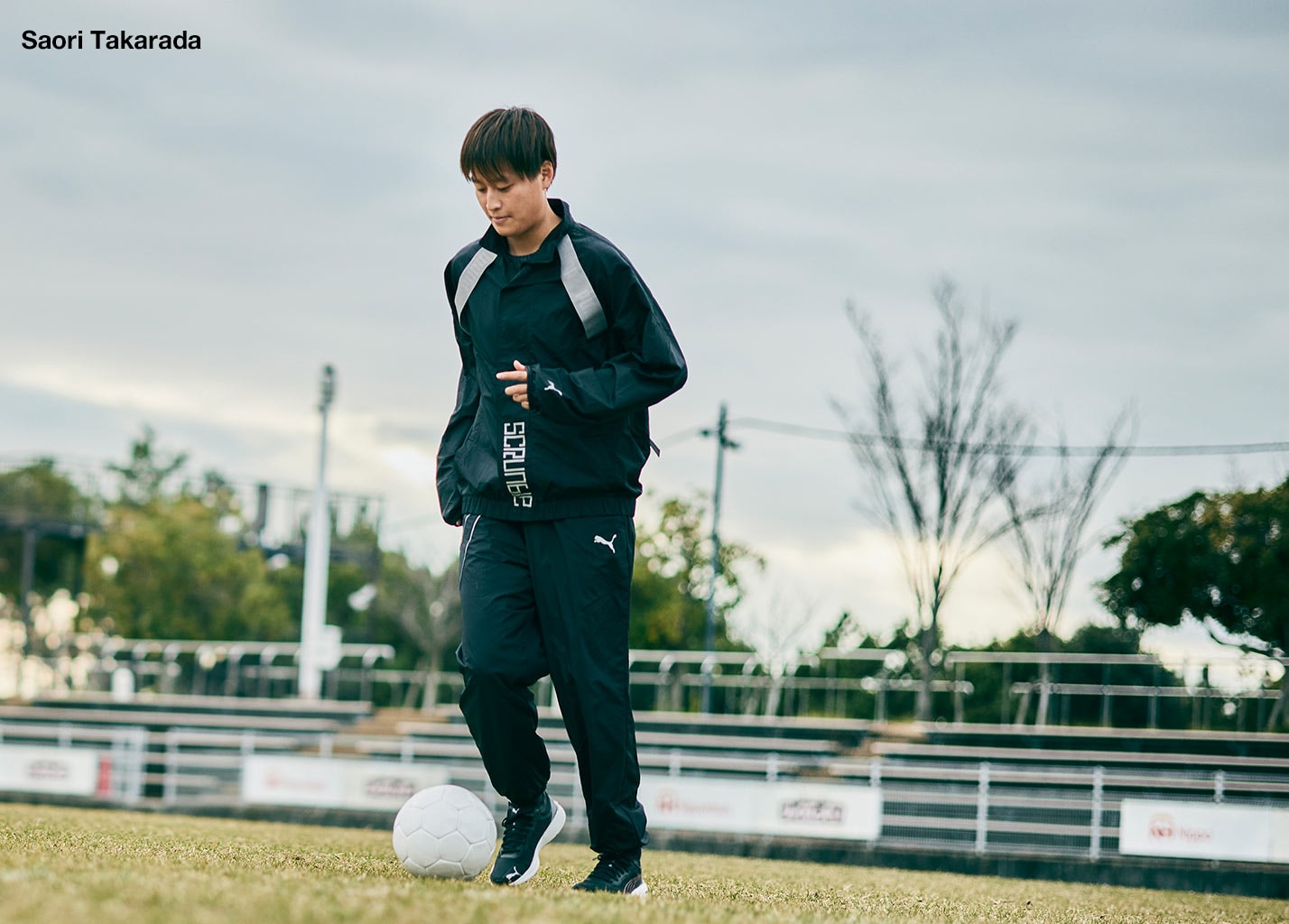
Now we must be the heroes
to make women's football more exciting.
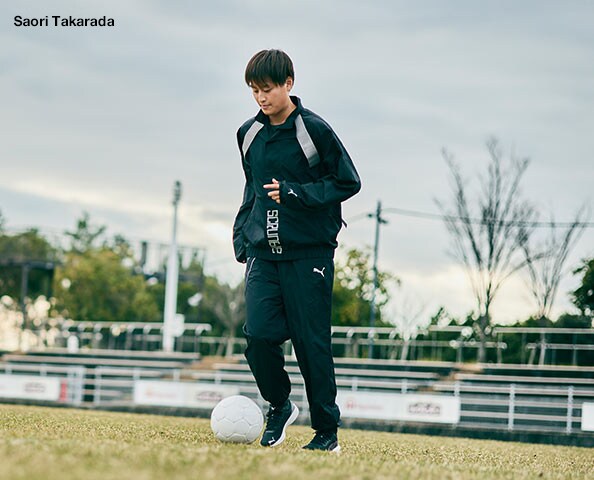
With the establishment of the professional women’s football league, WE League, women's football is gaining more and more attention in Japan. We asked them about their enthusiasm and thoughts on the Japanese women's football world, as they have been selected for the NADESHIKO Japan (Women’s Japan national team) and are carrying the future of the team at a young age.
- Q: Tell us about your plans from here on and the second season for you in a different country.
- HAYASHI: I think the first season was a year of learning the language, adapting to different style of play, getting to know my teammates, and getting used to a new environment. In my second year, I want to become a person who can help the team win by bringing out more of my characteristics in the team.
TAKARADA: First of all, my goal is to be a regular starting player and get consistent results. I can play any position which is my advantage, and if the team picks me to play, I will contribute to the victory. I would love to play in the Champions League someday. I am going to step up from here to be a top player in the world's most prestigious league. - Q: What kind of impact do you want to leave on Japanese women's football as you compete in the world?
- HAYASHI: When we were children, we watched NADESHIKO Japan became a champion at the World Cup. I used to admire the professional players competing in the world. Now, young girl’s footballer are watching us. I want to or I have to be the player they look up to. I want to make women's football more exciting by becoming someone who can give courage to people who don't usually watch our games and people in the same generation through our great success playing overseas.
TAKARADA: I would be happy if there are people who are inspired even a little bit by seeing me take on the challenge of going abroad at the age of 22. There is always anxiety when doing something for the first time, but I think you never know whether you can make it or not until you try. I have experienced many firsts, like converting my position and moving overseas without an interpreter, but I believe that I was able to achieve all of these things because I had the courage to tackle challenges. I will keep challenging myself to do new things and to change the women's football itself.
The two young NADESHIKO are growing up in overseas, both in terms of play and spirit. With their own motivations in mind, they continue to take on new challenges in foreign lands, and the day when their names will be known around the world is coming very soon.

